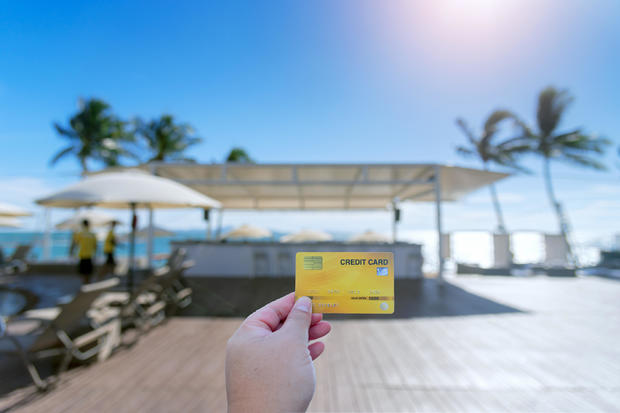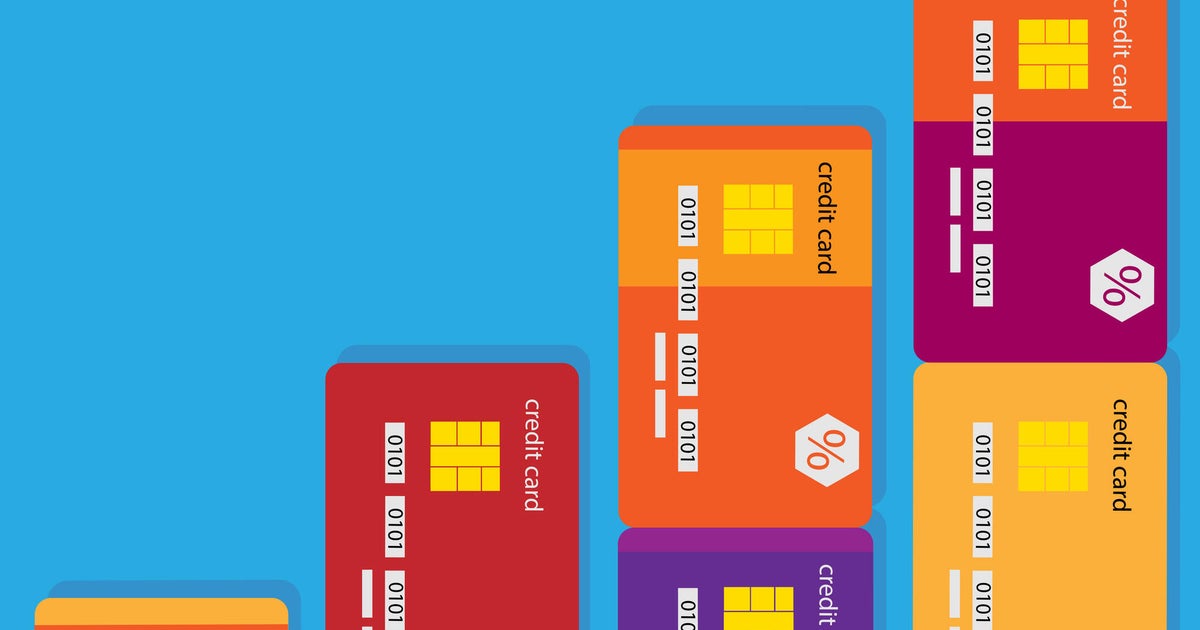Should you get a travel credit card? 4 types of cards to consider
If you have plans to get away, you're probably concerned with rising travel costs – from pricey airline flights and hotels to entertainment and gasoline.
Travel credit cards are a valuable option to help you navigate high prices while you're vacationing. Several travel cards offer valuable rewards on items like airline tickets, hotel stays and cash back towards travel purchases.
Here's what you need to know about travel credit cards, how they work and how to maximize travel benefits and save money. Plus, how you can utilize online tools to track your finances and find more ways to save money.
Remember: before applying for credit, make sure your credit score and history is in top shape. If it's not, you can work to restore your score today.
What are travel rewards credit cards?
Travel rewards credit cards allow you to earn rewards and discounts you can redeem for your travel. These rewards cards may be worth it if you can earn points or miles for purchases you're already making. Just ensure the value of the card's benefits is greater than its annual fee.
Like other rewards credit cards, you'll earn "points" or "miles" when you make purchases. Generally, airlines allow you to earn miles if you sign up for a credit card and enroll in their loyalty program, whereas hotel credit cards and general travel rewards cards pay you with points. Either currency is redeemable for travel rewards.
When comparing travel credit cards, check if the card has transferable points, which are redeemable for travel through numerous airlines and hotels and are not limited to just one. You can pile up rewards points through your everyday purchases and then transfer them to whichever partner best suits your plans or provides the best value.
Do credit cards have annual fees?
Many travel rewards cards come with annual fees, but that shouldn't automatically be a dealbreaker. It's wise to compare a credit card's annual fee against the value of the card's benefits. Some cards offer coveted extras like checked bags, priority boarding and airport lounge access that can add up to a value far exceeding the card's annual fee.
While it's important to check the annual fees, it's also important to check the rates you get with your credit cards. To guarantee the best credit card options it's crucial to have your credit in top shape. Experts can help you repair your credit score today.
4 different types of travel credit cards
You can choose from several different types of credit cards to find one that best suits your lifestyle and spending habits.
Here are some of the most common types of travel credit cards:
- General travel cards: General travel credit cards offer the flexibility to earn points for everyday spending and purchases in specific categories like travel and dining. Some travel rewards cards even offer additional perks, such as eliminating foreign transaction fees or skipping the line at airport security.
- Airline credit cards: Airline credit cards provide miles for a specific airline, which is a good option if you're partial to a particular chain. Benefits vary depending on the card issuer, but you may be able to earn free flights, flight upgrades, priority seating or other perks.
- Hotel credit cards: Hotel cards pay you with points you can use at partner hotel properties. Rewards may include free hotel stays and room upgrades. Some cards may even offer a free night after your account anniversary.
- Flat-rate credit cards: Flat-rate travel rewards cards are ideal if you want a card that gives you specific points for every purchase you make, with no categories to keep track of.
What are the benefits of a travel credit card?
Card issuers update their travel rewards programs with new features and benefits. If you're shopping for a new travel credit card, you'll likely come across some – or all – of these travel card benefits:
- Airport lounge access: Busy airports can be hectic and nerve-racking. A few minutes of relaxing in a participating airport lounge before your flight may be just what the doctor ordered.
- Baggage delay or lost baggage insurance: This insurance reimburses your costs for toiletries and clothing if your baggage is delayed or lost.
- Better exchange rates: Credit cards can potentially deliver better exchange rates than you'll find at ATMs and currency outlets.
- No transaction fees: Some credit card issuers waive foreign transaction fees (typically around 3% of the purchase price) when you make purchases in other currencies while abroad.
- Rental car insurance: If you're traveling on the road, you may benefit from the car rental coverage available with some travel rewards cards. When credit cards offer rental car insurance, it's typically secondary coverage for damage or theft. This coverage doesn't kick in until after your personal auto insurance provider pays.
- Travel experience credits: Some of the best travel card perks are those that directly improve your traveling experience, like airport lounge access, priority boarding and hotel credits for on-property restaurants and spas.
- Trip insurance: Rewards like insurance coverage for trip delays, cancellations and lost luggage may provide you with peace of mind.
- TSA PreCheck/Global entry perks: Most travel cards now offer a TSA PreCheck or Global Entry benefit to expedite your screening process at the TSA checkpoint – without having to pay the standard application fee.
- Welcome bonuses: Many credit card issuers offer generous welcome bonuses to entice people to apply for their credit cards.
How to maximize travel rewards
Here are a few common ways you can get the most mileage out of your travel rewards points:
- Use your credit card for big purchases: By using your credit card, you can rack up points to apply toward your travel plans, whereas using your debit card won't earn any points or miles.
- Pair your spending habits with the right card: Since many travel rewards credit cards offer elevated rewards for spending in specific categories, look for cards that give generous rewards in categories that align with your lifestyle. For example, if you regularly hail rides with Uber or Lyft, consider getting a travel credit card offering 10x points on rideshare services.
- Take advantage of bonuses: Travel cards commonly offer generous sign-up bonuses you can earn by meeting a specific spending threshold within the first few months of opening an account. Additionally, many card issuers send email promotions with opportunities for you to earn bonus points. For example, you may be able to earn tens of thousands of points just for referring a friend to become a cardholder.
- Avoid carrying a balance: Earning travel awards is exciting, especially when it results in substantial returns like a free flight. However, paying interest rate charges will cut into, or even wipe out, the value of any rewards you earn.
Are travel credit cards worth it?
Deciding whether or not a travel credit card is worth it to you will depend on the value of its benefits and whether you would use them.
Travel rewards won't do you much good if you rarely travel or if you wouldn't take advantage of perks like airport lounge access or a hotel spa treatment. On the other hand, if you're an avid traveler looking to build up miles for a free flight or other benefits, then a travel rewards card might make sense.
Before signing up for a new travel rewards credit card, it's a good idea to calculate the estimated value of the rewards benefits you would likely use in a given year. Compare that number with a card's annual fee to help determine if that is the right travel credit card for you.
Don't forget travel insurance
If you are an avid traveler, or even if you just travel a few times a year, it's probably worth buying travel insurance. Travel insurance has multiple benefits and can potentially save you significant sums of money in the event of illness, accident or death.
Travel insurance is relatively inexpensive (it usually costs between 4% and 8% of your trip's total cost). Typically, travel insurance will reimburse you for expenses covered by your policy once you file a claim (and it's approved by the insurer). The insurer will ask for proof of your loss or expense before approving your claim.
There are many different types of coverage, however. You may only need select insurance for specific trips. It's best to compare rates and services to find the right type for your planned travels. Use the table below to get started. Or directly speak with a travel insurance expert who can help you find the best protection for your trip.




